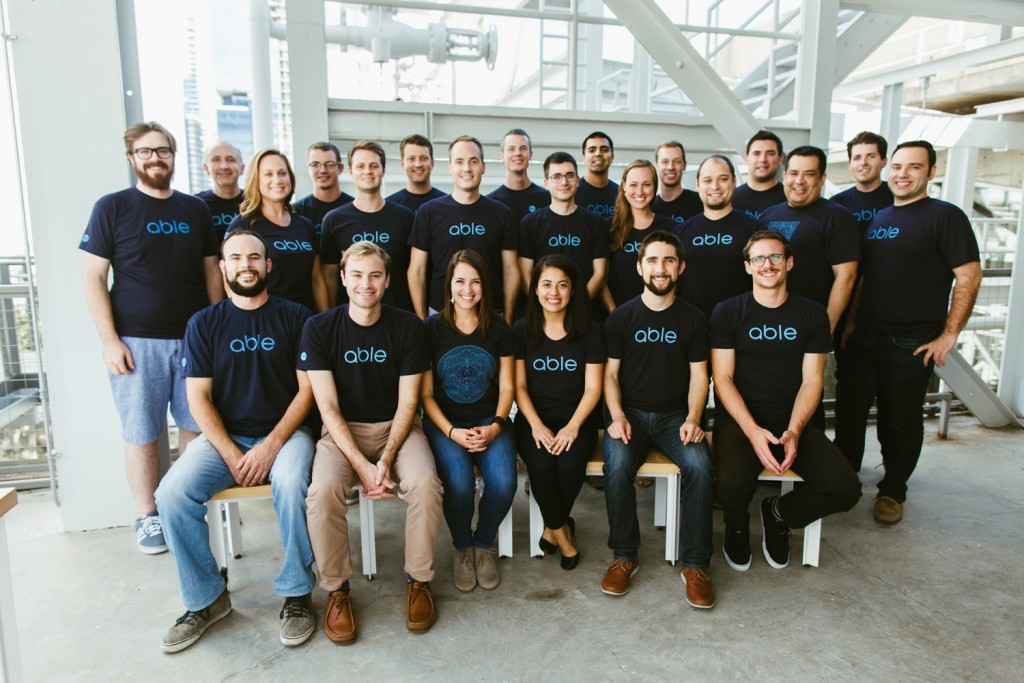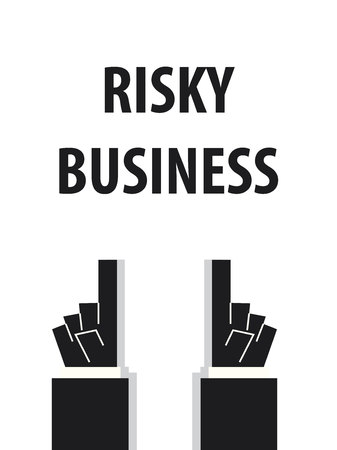Business Lending
UK Banks Will No Longer Be Allowed to Decline Small Businesses For Loans as Alt Lending Wins
October 10, 2016UK Banks better have a strong reason to turn down loan applicants, and if not, turn them over to another lender.
In an attempt to break the might of the big banks and back the thriving alternative finance industry, the UK Treasury will make it obligatory for banks to refer rejected small businesses to other lenders. Nine of the country’s largest banks including Royal Bank of Scotland, Lloyds, Barclays and HSBC will be legally obligated to do so when the plan goes into effect in the next three months, The Times reported.
The applicants will be referred to three loan marketplaces — Funding Options, Funding Xchange and Bizfitech that will make referral fees for loans funded on their platforms.
Online lending across the pond operates differently. The UK online alternative finance sector grew 84 percent in 2015, with support from the government and was one of the first countries to establish a regulatory framework where The Financial Conduct Authority (FCA) defines and categorizes crowdfunding, P2P lending and online lending. The UK is home to many early starters in the industry like Zopa and RateSetter.
Merchant Alleged To Have Forged Partner’s Signature On Merchant Loan Charged Criminally
October 9, 2016
It’s not a good idea to forge your partner’s signature, Troy Milbrath has learned, after being arrested on Thursday and charged with 16 felonies and three misdemeanors.
According to the Wisconsin State Journal, Milbrath, an owner of Mullen’s Dairy Bar & Eatery in Watertown, WI, took out loans and opened credit cards in his partner’s name and his partner’s wife’s name, in addition to taking out a merchant loan that his partner didn’t sign for.
His business partner, Todd Narkis, “found a business agreement with his name and Milbrath’s that allowed a financial company to take 35 percent of all credit card swipes at the business in order to pay off a loan,” the Wisconsin State Journal reports.
The business closed last month after the landlord refused to renew the lease. Just days before Milbrath’s arrest, he was reportedly looking to relocate. The business had been open since 1932.
The case number is 2016CF000392 in Jefferson County.
Loan Brokers Have it Easy in Alternative Lending
October 6, 2016 On a panel at the NACLB Conference in Las Vegas, Tom Zernick, the President of SBA Lending at First Home Bank explained that signing up a broker isn’t so simple. They have to conduct due diligence on them in advance, he said, because ultimately all their broker partners have to be reported to the SBA. Brokers can receive a 1% commission for completing a deal and also charge a separate fee to the merchant on their own but the merchant has to be aware of all of it and all the amounts reported to the SBA, he said.
On a panel at the NACLB Conference in Las Vegas, Tom Zernick, the President of SBA Lending at First Home Bank explained that signing up a broker isn’t so simple. They have to conduct due diligence on them in advance, he said, because ultimately all their broker partners have to be reported to the SBA. Brokers can receive a 1% commission for completing a deal and also charge a separate fee to the merchant on their own but the merchant has to be aware of all of it and all the amounts reported to the SBA, he said.
And even that might not be enough on its own, according to the panel that Zernick was part of. Brokers should be keeping a log of the services performed to earn those fees and the hours spent on each task, like an attorney would.
Contrast that with alternative lending where brokers and fees are not reported to any agency.
One good thing about SBA lending these days though, according to Zernick, is that when he started in the business about 30 years ago, he joked it could take about a year to fund a loan but that today in reality it takes less than 30 days on average to fund.
Brief: PE Giant Warburg Pincus to Acquire Texas Funder Ascentium Capital
October 6, 2016New York-based private equity firm Warburg Pincus agreed to acquire Texas-based equipment financing company Ascentium Capital. The details of the deal remain undisclosed.
Ascentium Capital, with $1.1 billion in assets provides vendor financing, partnering with distributors, resellers to fund their small business customers. And in March this year, it started lending to ISOs and retail merchants directly. The company will be continued to run by CEO Tom Depping who will roll over his stake in the business.
“We see a compelling market opportunity to continue to build Ascentium to become a multi-product capital provider to small businesses through both organic growth and complementary acquisitions,” said Arjun Thimmaya, Managing Director, Warburg Pincus in a statement.
The five year old firm has financed over $2 billion since inception, and funded $225.4 million during Q2 this year. Ascentium’s financial advisor was Goldman Sachs and Vinson & Elkins LLP served as legal counsel.
Personal Network Lender Able Lending Raises $100 Million As Debt
September 28, 2016
Austin, Texas-based small business online lender Able Lending has secured $100 million in debt financing from San Francisco-based investment firm, Community Investment Management (CIM).
Able prefers lending to entrepreneurs who raise part of the funds from their personal network of family and friends that Able calls ‘Backers.’ These ‘backers’ typically fund as much as 10 percent of most Able loans whose term loans go up to $1 million with rates starting at 8 percent for companies with revenues over $100,000.
In June this year, the startup committed to deploy $5 million to fund companies in the Dallas-Forth Worth area right about the time when its rival San Francisco-based Vouch Financial closed shop. Vouch made personal loans based on a ‘vouching network’ of sponsors.
“During a time when investors’ confidence in alternative lending has plunged, this investment is a vote of confidence in our loan model and our team,” said Able Lending CEO Wills Davis in a statement. The company estimates that it will fund approximately 500 small businesses from the CIM deal.
Entire Industries Still Unbankable Despite Big Data Boom
September 28, 2016
The use of data and technology for assessing risk shows promise for new borrowers, safer bets and fewer delinquencies. Big data has been credited for overhauling traditional lending models and ushering in a new crop of lenders that do not shy away from risky businesses and low credit scores. But has it been successful in narrowing the list of industries previously ineligible to even be considered? And perhaps there’s a bigger story, that some lenders still maintain a list of industries they cannot or will not lend to despite the boom in data. deBanked checked the temperature on restricted lending practices today with three lenders and here’s what we found.
Jersey City-based World Business Lenders whose average loan size is $150,000 does not lend to startups. According to chief revenue officer, Alex Gemici, startups usually don’t have revenues to justify payments. “Startups fail the ‘ability to pay’ test,” he said.
The restricted industries for WBL are the usual-suspects that fall in the federal legality grey areas like Marijuana related businesses and adult entertainment websites and weapon manufacturers that the company takes a moral stance against. Gemici said that the company has never lent to these industries and will evaluate the policy only if the need arises.
Apart from these WBL also classifies certain establishments as ‘high risk,’ either prone to defaults or without a steady cash flow like car dealers, childcare services, gas stations, real estate speculators, stock brokers, insurance brokers etc. which the company lends to with increased scrutiny and tighter checks.
 Often, the risk appetite of a company depends on how long it has been in business and its funding track record. For instance, San Diego-based National Funding is 17 years old but is gun shy when it comes to lending to auto dealerships, thanks to sustained losses. “We don’t lend to auto dealerships because they already have enough MCA plans out there,” said CEO Dave Gilbert. “It’s too risky to be in that environment without being tied to actual assets, we have had too many losses.”
Often, the risk appetite of a company depends on how long it has been in business and its funding track record. For instance, San Diego-based National Funding is 17 years old but is gun shy when it comes to lending to auto dealerships, thanks to sustained losses. “We don’t lend to auto dealerships because they already have enough MCA plans out there,” said CEO Dave Gilbert. “It’s too risky to be in that environment without being tied to actual assets, we have had too many losses.”
Government agencies, membership organizations (usually, non profit), insurance brokers, online dating services, weapon manufacturers, credit repair services, gambling and ticket sales websites are also industries the company does not lend to.
However, construction companies, oil companies, transportation and industries with high subsidies like solar businesses are what National Funding considers high risk and will finance cautiously, by tightening the credit window, advancing smaller amounts, demanding higher FICO scores and increasing scrutiny on cash flows.
Irrespective of whether a company automates underwriting, few contest the need for rich and varied data for calculating risk and approving a loan. Kennesaw, Georgia-based IOU Financial, which recently started lending in Canada, has a proprietary ‘Risk Logic’ score for underwriting which includes credit data, financial and non-financial accounts, public records, transactional data and a business owner’s personal credit information.
Despite this, it restricts lending to businesses with seasonal cash flow like tax prep services, industries that invoice out for larger orders including manufacturing, and marijuana dispensaries. IOU also does not lend to industries where it has faced high delinquencies in the past, like oil refinery service related industries and supply chain service providers that are subject to fluctuations in commodity prices.
And if OnDeck, the touted leader in deploying big data for underwriting prohibits 60 industries in five different categories including blood and organ banks, payroll companies and its own kind — non-bank financial companies, has big data really changed underwriting?
Shark Tank Star Barbara Corcoran Stars in OnDeck TV Commercial
September 27, 2016Real estate mogul Barbara Corcoran is going beyond Shark Tank to help small businesses, this time by appearing in TV commercials for OnDeck.
“All small business owners have grit and perseverance. That’s a given. What they sometimes lack is access to capital. That’s where OnDeck becomes so valuable. OnDeck has the services and solutions that entrepreneurs need to meet daily challenges and grow their business,” said Ms. Corcoran in an OnDeck announcement. “I’m delighted to communicate the good news to small businesses that, thanks to OnDeck, financing their dreams is easier and faster than ever.”
See both versions of the commercial below:
Corcoran isn’t the only Shark Tank star to promote a small business lender. Kevin O’Leary, for example, is a spokesperson for IOU Financial, Lori Greiner is a spokesperson for Kabbage, and Kevin Harrington actually co-founded Ventury Capital.
Kalamata Capital Chairman Steven Mandis Authors Second Book
September 25, 2016 Kalamata Capital Chairman Steven Mandis is doing more than just approving small businesses up to $750,000 in under 24 hours. He’s also just authored a new book, The Real Madrid Way: How Values Created the Most Successful Sports Team on the Planet.
Kalamata Capital Chairman Steven Mandis is doing more than just approving small businesses up to $750,000 in under 24 hours. He’s also just authored a new book, The Real Madrid Way: How Values Created the Most Successful Sports Team on the Planet.
Not a subject you expected from a tech-driven small business lender? Steven Mandis is not your average industry executive…
Prior to Kalamata, he worked at Goldman Sachs in the investment banking, private equity, and proprietary trading areas. He assisted Hank Paulson and other senior executives on special projects and was a portfolio manager in one of the largest and most successful proprietary trading areas at Goldman. After leaving Goldman, he cofounded a multibillion-dollar global alternative asset management firm that was a trading and investment banking client of Goldman’s.
During the financial crisis, Mandis was a senior adviser to McKinsey & Company before becoming chief of staff to the president and COO of Citigroup and serving on executive, management, and risk committees at the firm.
He’s also an adjunct professor at Columbia Business School, where he teaches classes of MBA and executive MBA students on strategic issues facing investment banks and the European financial crisis.
His first book, What Happened to Goldman Sachs? was widely acclaimed. “Several authors have tackled the question of how Goldman’s culture changed post-1999 but none so deftly as Steven G. Mandis, a banker-turned-sociologist,” wrote the Wall Street Journal. I also read it cover-to-cover myself back in March of 2015.
In Real Madrid, “Mandis is the first researcher to rigorously analyze both the on-the-field and business aspects of a sports team. What he learns is completely unexpected and challenges the conventional wisdom that moneyball-fueled data analytics are the primary instruments of success.”
Former NBA Commissioner David Stern said of the book, “With unprecedented behind-the-scenes access, this book is the most complete study of any sports team ever done–which leads to fascinating conclusions.”
Are you a finance buff? Sports buff? Perhaps both? You’ll want to read his new book.






























